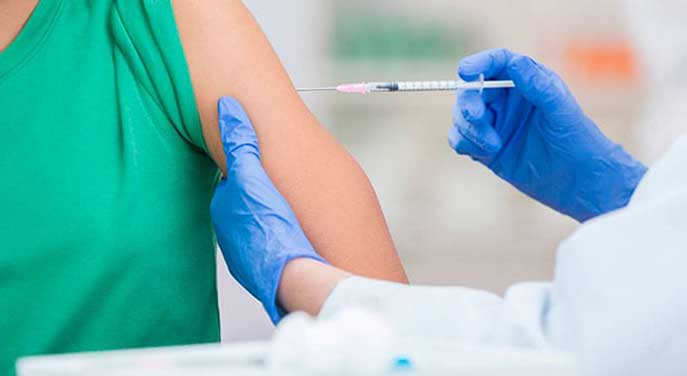By Juliet Guichon
University of Calgary
and Dr. Rupert Kaul
University of Toronto
The HPV (Human papilloma virus) vaccine was created to prevent an infection that causes cancer. That is pretty exciting.
Given the power of HPV vaccine to prevent disease and death, a recent article in the Toronto Star, which appears to suggest that the HPV vaccine causes harm, is troubling and disappointing. Although the article states that “there is no conclusive evidence showing the vaccine caused a death or illness,” its litany of horror stories and its innuendo give the incorrect impression that the vaccine caused the harm.
Very unfortunately, this article may well lead readers to doubt both the scientific evidence and the recommendations of the Public Health Agency of Canada, the Society of Obstetricians and Gynecologists of Canada, the National Advisory Committee on Immunization, and the Canadian Cancer Society about vaccination.
The story further states that some people became sick and even died after being vaccinated against HPV infection. Those same people could have also won the lottery after being vaccinated as well. Does this mean the vaccine caused them to win? Hardly.
The fact that one event follows another does not mean that the first event caused the second – in scientific terms, correlation is not causation.
For example, the number of shark attacks and ice cream sales rise when the weather is hot. The confusion of correlation and causation here is funny because, of course, the shark attacks don’t cause ice cream sales to increase. But in the case of the HPV vaccine, such confusion is not funny because HPV infection can have very serious consequences that the vaccine helps prevent.
HPV infection causes nearly all cervical cancers and cancers of the vulva, vagina, penis, anus and throat. Two strains (“types”) of HPV, called HPV16 and HPV18, are responsible for about 70 percent of cervical cancers and an even higher proportion of the other HPV-associated cancers. Two other HPV types, HPV6 and HPV11, cause about 90 percent of genital warts. The vaccine smeared by the Star’s article, Gardasil, prevents infection by these four strains of HPV.
In 2008, approximately 610,000 cases of cancer worldwide were attributable to HPV.
HPV infections in Canada annually result in 85,000 physician consultations for genital wart infections, 1,450 newly diagnosed cases of cervical cancer and 106,000 patients with cervical lesions that require expensive, painful treatment that can cause infertility and premature birth. In Canada, 380 women die from cervical cancer every year, many of them in the prime of life. HPV infections are a very real threat to the health of Canadians.
All of us must take very seriously the potential complications of any drug or vaccine. Gardasil was licensed only after its safety was studied in clinical trials with more than 29,000 people. After licensing, reported side effects are collected in a vaccine safety database. Researchers studied that database after more than half a million doses of Gardasil had been administered. The only – and very rare – serious side effect of HPV vaccines that they identified was allergic reactions. Public health officials who continue to study these databases have not found evidence of any other serious side effects.
The Star presented the stories of women who have suffered greatly. The article was engaging, dramatic and might have created fear. But study after study has shown that there is no causal link between the events the Star reported and the vaccine. About 169 million doses of the HPV vaccine have been administered worldwide. In any given large population, there will be illness and death. This is a statistical fact. To attribute rare devastating occurrences to a vaccine requires evidence of causation, of which the international scientific community and the Star article have none.
When such articles appear, we all lose. Those of us in a position to influence others have a responsibility to provide the best evidence about health-related issues. In this case, the evidence is very clear that the risks associated with HPV infection are much greater than the risks associated with vaccination.
Juliet Guichon, of the University of Calgary, is the recipient of the Canadian Medical Association Medal of Honour for HPV vaccine related work. Dr. Rupert Kaul is a Professor in the Departments of Medicine and Immunology, and the Head of the Division of Infectious Diseases at the University of Toronto.
Juliet and Rupert are Troy Media contributors. Why aren’t you?
The views, opinions and positions expressed by columnists and contributors are the author’s alone. They do not inherently or expressly reflect the views, opinions and/or positions of our publication.




